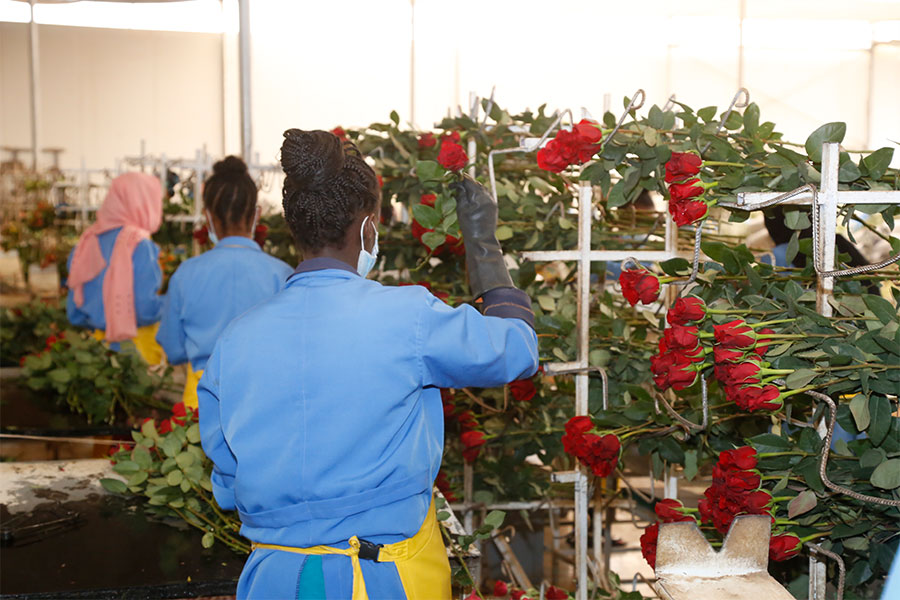
Agenda | Jul 13,2025
Jul 13 , 2019
By Paulo Gomes
Gross domestic product has been the ultimate measure of an economy’s welfare for over 80 years. But as the world’s economies become increasingly complex and technology-focused, economists are increasingly questioning GDP’s usefulness as a gauge of an economy’s health, with some arguing for a radically new approach. Africa’s experience shows why such an approach is badly needed.
Africa has long suffered as a result of GDP’s shortcomings. In January, the global credit-ratings agency Fitch Solutions forecast that while Africa’s GDP growth will average 4.5pc annually over the next decade, its average GDP per capita will stagnate. But such bleak projections are misleading – and threaten to drive away investors.
The first problem with GDP projections for Africa is that they are based on scarce data. The majority of the continent’s national statistics services are underdeveloped. They lack sufficient funding and independence to acquire comprehensive data and calculate benchmark economic indicators. In other words, official GDP figures may be very wrong.
Consider Nigeria, which in 2014 overhauled its GDP data for the first time in over two decades. Such “rebasing” – needed to capture structural changes to the economy – should take place every five years or so. But Nigeria’s national statistical agency had lacked the funding, data and political will to rebase regularly. When it finally did, GDP skyrocketed to 510 billion dollars, nearly double the previous estimate of 270 billion dollars. With that, Nigeria overtook South Africa as the continent’s largest economy.
The fact that much of economic activity in Africa occurs in the informal sector further undermines the reliability of GDP statistics. In Sub-Saharan Africa, the informal economy accounts for two-thirds of all employment; in cities such as Kampala and Dakar, that figure reaches or even exceeds 80pc.
In Nigeria, the informal sector represents 50-65pc of total economic output. A metric that fails to measure so much economic activity can’t possibly be a sound basis for investment decisions.
Even if country and continent-level GDP averages were more reliable, they would amount to a cumbersome guide for investors, especially given how large and diverse Africa is. In fact, African countries with vastly different GDPs may share more – and more important – features than countries with similar GDPs.
For example, Namibia’s diversified economy has more in common with South Africa, a country with nearly 30 times the GDP, than it does with Senegal, a country of similar economic size when measured by GDP. Nigeria’s GDP is far larger than Chad’s, yet their economies are often compared to each other because of the dynamics of their oil sectors. Such structural commonalities provide more nuanced insights for investors than ungainly GDP averages ever could.
But perhaps the best way to gain an appropriately nuanced understanding of African economies’ health and prospects is by focusing on their cities – the continent’s main engines of economic development. While 60pc of Africans still live in rural areas, the continent is undergoing rapid urbanisation. In the next 15 years, the world’s ten fastest-growing cities will all be in Africa. The economic output of Lagos, Nigeria’s largest city, is larger than that of Kenya, one of the continent’s most promising economies.
Already, some multinationals are using city-based models to guide their African investment strategies. They know that dismal national GDP averages can obscure pockets of increasingly prosperous consumers who are eager to purchase high-quality goods and services from abroad. Thus, when determining a market’s viability, they often focus on cities, considering diverse indicators like mobile-phone penetration, electricity usage and internet bandwidth.
One global packaged-food manufacturer, for example, has focused its Africa strategy on 15 cities that collectively represent about 25% of the total growth in packaged-food sales expected across Africa in the next five years. More broadly, foreign direct investment has been flowing primarily toward Africa’s four main mega cities: Cairo, Johannesburg, Nairobi and Lagos.
Of course, whether at the city or country level, comprehensive and reliable data are needed to provide a strong foundation for investment strategies. Private companies – including African tech startups – can take advantage of new technologies to help deliver this. For example, Terragon, a Nigerian data analytics firm, pulls data on mobile-phone usage and matches it against data provided by its business clients to produce insights about African consumers.
PUBLISHED ON
Jul 13,2019 [ VOL
20 , NO
1002]


Agenda | Jul 13,2025

Sunday with Eden | Jul 03,2021

View From Arada | Dec 04,2020


Radar | Jan 01,2022

Radar | Apr 24,2021

Radar | Apr 27,2025

Radar | Aug 10,2025

Sunday with Eden | Feb 17,2024

Radar | Aug 03,2019

Photo Gallery | 178645 Views | May 06,2019

Photo Gallery | 168839 Views | Apr 26,2019

Photo Gallery | 159673 Views | Oct 06,2021

My Opinion | 137092 Views | Aug 14,2021
Commentaries | Oct 25,2025

Dec 22 , 2024 . By TIZITA SHEWAFERAW
Charged with transforming colossal state-owned enterprises into modern and competitiv...

Aug 18 , 2024 . By AKSAH ITALO
Although predictable Yonas Zerihun's job in the ride-hailing service is not immune to...

Jul 28 , 2024 . By TIZITA SHEWAFERAW
Unhabitual, perhaps too many, Samuel Gebreyohannes, 38, used to occasionally enjoy a couple of beers at breakfast. However, he recently swit...

Jul 13 , 2024 . By AKSAH ITALO
Investors who rely on tractors, trucks, and field vehicles for commuting, transporting commodities, and f...

Oct 25 , 2025
The regulatory machinery is on overdrive. In only two years, no fewer than 35 new pro...

Oct 18 , 2025
The political establishment, notably the ruling party and its top brass, has become p...

Oct 11 , 2025
Ladislas Farago, a roving Associated Press (AP) correspondent, arrived in Ethiopia in...

Oct 4 , 2025
Eyob Tekalegn (PhD) had been in the Governor's chair for only weeks when, on Septembe...

Oct 25 , 2025 . By YITBAREK GETACHEW
Officials of the Addis Abeba's Education Bureau have embarked on an ambitious experim...

Oct 26 , 2025 . By YITBAREK GETACHEW
The federal government is making a landmark shift in its investment incentive regime...

Oct 29 , 2025 . By NAHOM AYELE
The National Bank of Ethiopia (NBE) is preparing to issue a directive that will funda...

Oct 26 , 2025 . By SURAFEL MULUGETA
A community of booksellers shadowing the Ethiopian National Theatre has been jolted b...